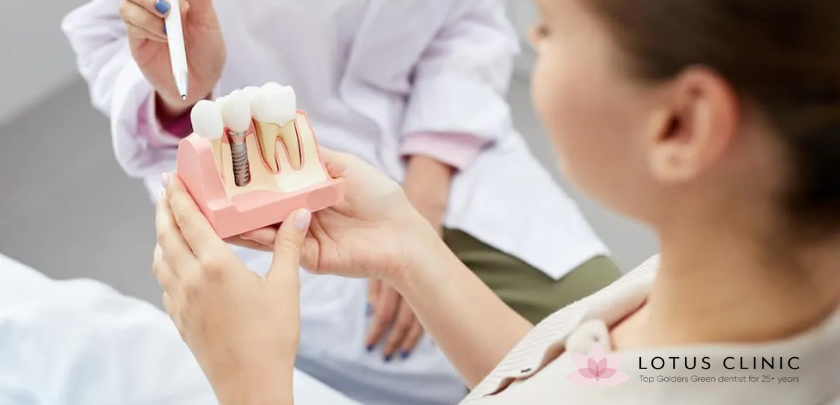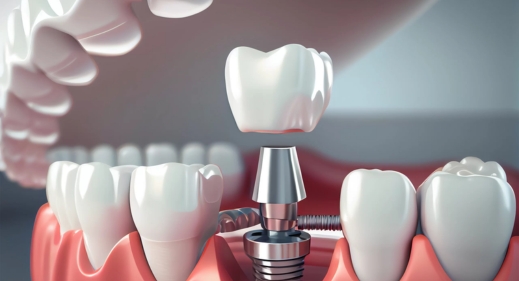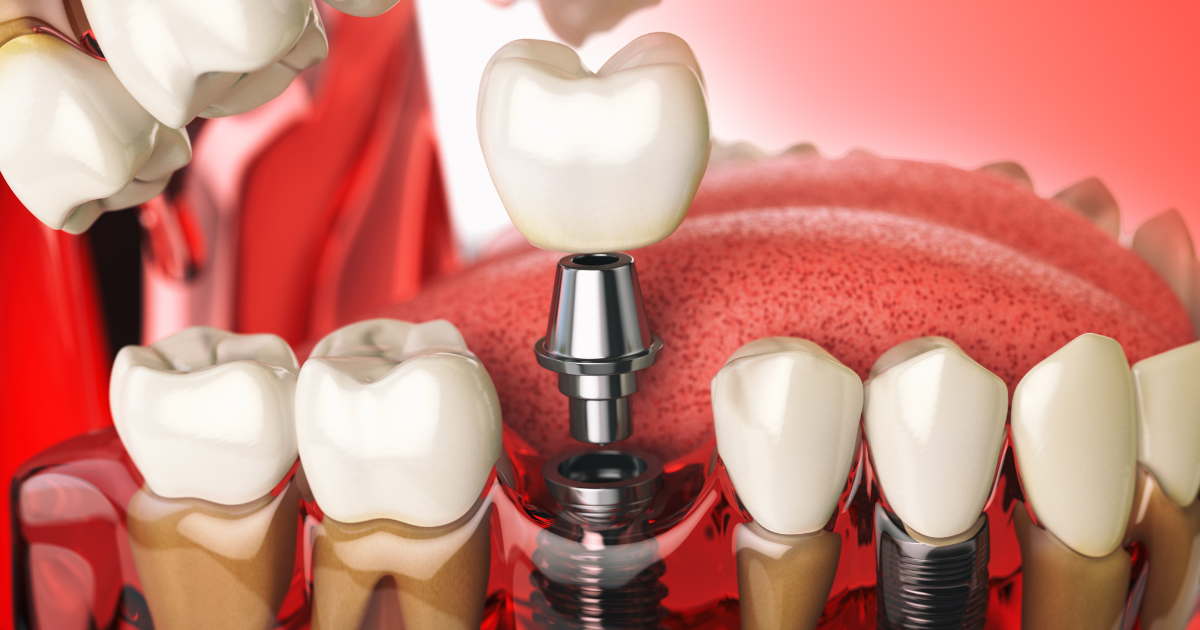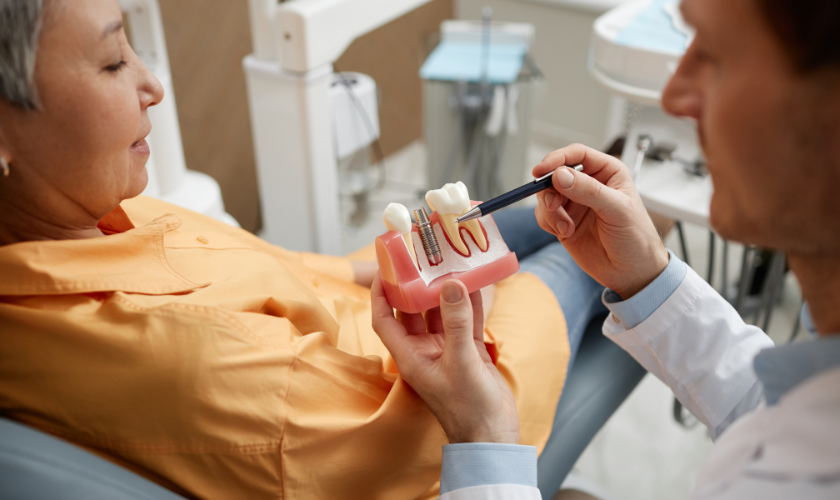943 Finchley Rd, London NW11 7PE
Dental Implant Recovery: Tips for a Smooth Healing Process

Dental implants are a revolutionary solution for replacing missing teeth, offering exceptional functionality and aesthetics. However, like any surgical procedure, the success of dental implants hinges on a smooth and comfortable recovery period. This blog delves into the essential tips and tricks to navigate your post-operative journey with confidence, ensuring optimal healing and a return to your radiant smile.
Understanding the Healing Timeline
The healing timeline for dental implants can vary depending on individual factors, but understanding the general stages can help you manage expectations and prioritise comfort. Here’s a simplified breakdown:
The Initial Days (1-3 days)
Expect some discomfort, swelling, and minor bleeding after surgery. Your dentist will prescribe medication to manage these symptoms, and a special diet of soft foods is recommended. Gentle rinsing with a saltwater solution is crucial for maintaining oral hygiene.
The First Week (4-7 days)
The swelling should gradually subside, and you can cautiously introduce softer foods like pasta and mashed potatoes. Brushing your teeth gently around the implant site is crucial, but avoid direct contact until advised by your dentist.
The Second Week (8-14 days)
Most patients experience significant improvement in comfort. You can gradually re-introduce your regular diet, though caution with hard and crunchy foods is still advised. Light physical activity can be resumed, but avoid strenuous exercise.
3-6 Months
During this period, the implant undergoes a crucial process called osseointegration, where it fuses with the jawbone. You can return to your normal activities. However, be mindful of maintaining good oral hygiene and attending follow-up appointments with your dentist.
Essential Tips For A Smooth Recovery
Following dental implant surgery, the focus shifts to optimising your healing journey for a successful outcome. Here are some key tips to navigate this process smoothly:
Managing Discomfort
Your dentist will prescribe medication to manage any discomfort and inflammation you may experience following the procedure. Take these medications exactly as directed. Over-the-counter pain relief medication like paracetamol can also be helpful. However, make sure to seek professional help before taking any additional medication.
Dietary Considerations
In the initial days after surgery, stick to a soft food diet. This includes mashed potatoes, yoghurt, soups, and well-cooked vegetables. As your comfort level improves, gradually introduce firmer textures back into your diet. Also, take additional care to avoid anything hard, crunchy, sticky, or spicy. These foods can dislodge the implant or irritate the surgical site.
Maintaining Oral Hygiene
Maintaining good oral hygiene is crucial for preventing infection and promoting healing. Gently brush your teeth twice daily with a soft-bristled toothbrush, using an antiseptic mouthwash as advised by your dentist. Avoid harsh brushing or flossing directly around the implant site until your dentist gives you the go-ahead.
Prioritising Rest and Recuperation
After your surgery, getting adequate rest and sleep is essential to allow your body to focus on healing. Avoid strenuous physical activity for the first few days, and gradually resume your exercise routine as per your dentist’s instructions.
Managing Swelling
Applying an ice pack to the outside of your cheek can help reduce swelling and discomfort. Wrap the ice pack in a clean towel and apply it for 20-minute intervals with breaks in between.
Lifestyle Modifications
Smoking and excessive alcohol consumption can hinder healing and increase the risk of infection. It’s best to avoid these entirely during the recovery period.
Maintaining Communication with Your Dentist
Regular follow-up appointments with your dentist are crucial. These appointments allow them to monitor your healing progress, address any concerns you may have, and ensure the implant integrates properly with your jawbone. Attending these appointments is essential for a successful long-term outcome.
Dental implant recovery, while requiring attention and care, should be a manageable experience. By following these tips, prioritising good oral hygiene, and adhering to your dentist’s instructions, you can navigate your healing journey with confidence. Remember, your dentist is your partner in this process, and their expertise is invaluable throughout. Don’t hesitate to reach out to them with any questions or concerns you may have to ensure a smooth and successful recovery.







